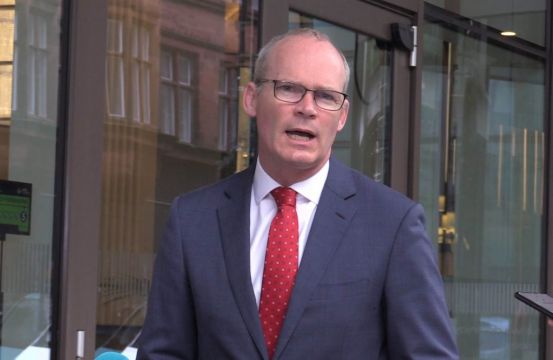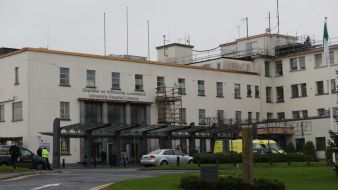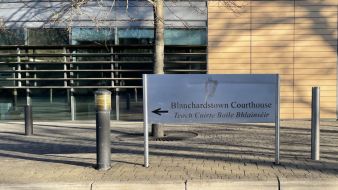Updated at 11:20
As the EU is expected to announce an immediate travel ban to southern Africa due to new strain of Covid-19, Foreign Affairs Minister has pointed to the Irish Government making a decision today.
As the Irish Times reports, the B.1.1.529 variant, which is more transmissible than the dominant Delta variant has been discovered in South Africa’s most populous province Gauteng.
The EU Commission president Ursula von der Leyen tweeted saying The EU Commission will propose, in close coordination with Member States, to activate the emergency brake to stop air travel from the southern African region due to the variant of concern B.1.1.529.
Minister for Foreign Affairs Simon Coveney also said a decision on a travel ban is likely to be made later today.
He said it is important to move quickly on this, coordination across EU is important to be effective. The Foreign Affairs Minster said his department is consulting with the Department of Health, Dr Tony Holohan and the EU Commission to make decisions on international travel.
He added "Expect confirmation of decision later today.”
Important to move quickly on this, coordination across EU is important to be effective. @dfatirl is consulting with @roinnslainte @CMOIreland & @EU_Commission to make decisions on international travel. Expect confirmation of decision later today. https://t.co/E4iajgk3nS
— Simon Coveney (@simoncoveney) November 26, 2021
The UK has suspended flights from South Africa, Namibia, Zimbabwe, Botswana, Lesotho and Eswatini (formerly Swaziland).
From midday on Friday all UK and Irish residents will be banned from entering the UK if they have been in the six countries over the last 10 days.
Hotel quarantine
Any British or Irish resident arriving from the countries after 4am on Sunday will have to quarantine in a hotel in the UK.
Minister for Justice Helen McEntee has said that if hotel quarantine measures are required to deal with the new South African variant “then that's what we will do.”
It comes as the Covid adviser for the Irish College of General Practitioners (ICGP), Dr Mary Favier warned that if the new South African variant of the virus manages to “out run” Delta, then “we will have a problem.”
It was still unknown if vaccines would work against the new variant which was why so much attention was being paid to it, she told Newstalk Breakfast.
On RTÉ radio’s Morning Ireland immunology expert, Professor Christine Loscher said she expected the World Health Organisation (WHO) to move the status of the new variant from one of interest to one of concern in the near future.
The new variant was of concern because of the number of mutations in the spike proteins, and it was still unclear how this variant would respond to vaccines. It was a case of wait and see the impact, she said.
Lower dose vaccine
Meanwhile, HSE chief executive Paul Reid, speaking on Newstalk Breakfast and RTÉ radio's Morning Ireland, said the HSE would wait for Nphet to communicate with the Government which would in turn alert the HSE, regarding hotel quarantine.
He said the reality was that giving the vaccine to children was another tool in the fight against Covid. He acknowledged that this would be a difficult decision for parents, but the HSE would be seeking the views of parents and would be conducting workshops to ascertain what was important to them.
The HSE had a plan in place, and it would be ready to go once the new lower dose vaccine for children arrived in the country, which was likely to be late December, he said.
Mr Reid pointed out that at present attendances by children at emergency departments were up 70 percent from two years ago, many were for respiratory illness, not Covid, but it was still putting significant pressure on the health system.
In the meantime the HSE would be operating a number of walk-in booster clinics around the country in a bid to speed up the roll out. Mr Reid encouraged people aged over 60 who were more than five months since their last dose, to check out the HSE website to see if there was a walk-in clinic near them.
However, he warned that the HSE would “have to be strict” and only people in those categories would get the booster at the walk-in clinics.
The booster campaign was progressing well, he said with 630,000 booster doses delivered to date, 200,000 in the last week. Supply was not a factor.
Mr Reid said that PCR tests were in “extremely high demand”, one million tests had been performed in the past six weeks, 210,000 in the last seven days. Extra centres were being opened with three more due next week involving private operators and the national ambulance service providing a pop up centre.
“I would ask the public to bear with us.”
Mr Reid thanked the public for responding to public health requests to reduce social contacts which was having an impact and was helping to “de risk” the current situation.







